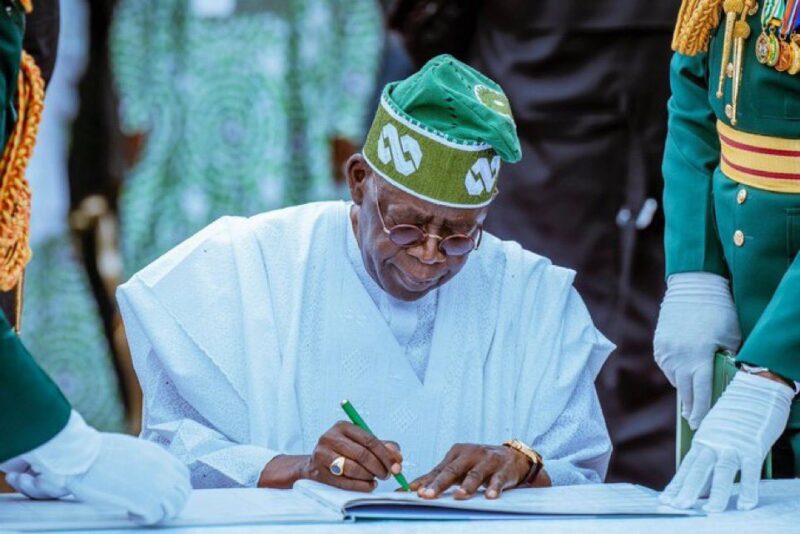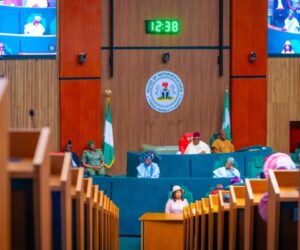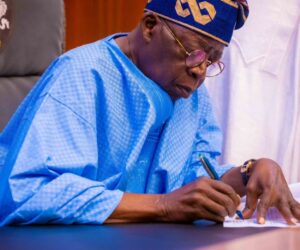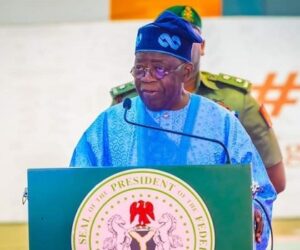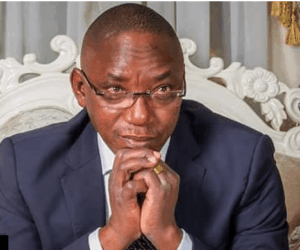The Federal Government has approved the postponement of the implementation of the 15 per cent import duty on petrol and diesel until the first quarter of 2026, contrary to earlier notions that the suspension was indefinite, The PUNCH has learnt.
The deferment, formally approved by President Bola Tinubu, was in response to a detailed request submitted by the Executive Chairman of the Federal Inland Revenue Service, Dr Zacch Adedeji, following extensive strategic consultations with key stakeholders to assess market readiness and ensure a smooth and orderly rollout of the 15 per cent import duty.
Adedeji made the request in a letter dated November 7, 2025, titled “Deferment of the Commencement of the Implementation of the Premium Motor Spirit (petrol) and Diesel Import Duty.”
Advertisement
The letter obtained exclusively by our correspondent on Thursday stressed the need to ensure that local refining infrastructure is fully prepared, technical and operational frameworks are properly aligned, and fuel supply disruptions are minimised before the levy takes effect.
The duty, originally approved on October 21, 2025, was aimed at boosting domestic refining capacity, stabilising downstream fuel prices, and promoting fair competition between imported and locally produced fuels.
Earlier on Thursday, the Nigerian Midstream and Downstream Petroleum Regulatory Authority announced the suspension of the planned 15 per cent ad-valorem import duty on petrol and diesel, reversing an earlier policy move aimed at encouraging local refining and reducing dependence on fuel imports.
The policy suspension was confirmed to our correspondent by the Director, Public Affairs Department at the Nigerian Midstream and Downstream Petroleum Regulatory Authority, George Ene-Ita, on Thursday, via a telephone conversation.
He explained that the planned tariff had been suspended, saying, “Well, you read it, that is what it means. It is no longer in view and not implementable at this time.”
He stated this while clarifying a press statement earlier issued by the agency. When asked if the decision had the approval of President Bola Tinubu, the official confirmed, “Yes, it is (with his approval).”
The NMDPRA is one of the major federal agencies assigned to enforce the tariff, ensuring compliance with the import duty structure. But a new letter confirming the deferment, sighted by The PUNCH, read that Tinubu, rather, approved the postponement of the implementation “for further review in the first quarter of 2026.”
The letter read, “The purpose of this memorandum is to apprise Your Excellency of the need for a deferment in the commencement schedule of the implementation of the previously approved fifteen per cent (15 per cent) import on Premium Motor Spirit and Diesel, sequel to additional strategic consultations on implementation readiness.
“Your Excellency may wish to recall that on 21st October 2025, via presidential PRES8197/HAGF/100/71/FIRS/40/88-2/NMDPRA/2, you graciously approved the introduction of fifteen per cent (15 per cent) ad-valorem import duty on Premium Motor Spirit (PMS and Diesel). The measure was conceived as a corrective policy tool to strengthen local refining capacity, stabilise downstream market prices, and promote competitive parity between imported and domestically produced fuels in line with the Renewed Hope Agenda for energy and fiscal sustainability.
“Pursuant to the above approval, and in line with Your Excellency’s directive that all fiscal and market interventions must be reflective of the administration’s drive for efficiency and balance, a series of consultative meetings was held with critical stakeholders to review implementation timelines and operational readiness.
“Sequel to these engagements, and following a thorough assessment of market conditions and the agreed strategic implementation roadmap, it was collectively determined that it is necessary to allow for a smoother and more efficient rollout. This adjustment will provide adequate time for stakeholders to complete alignment on technical templates, public communication frameworks, and import scheduling, thereby minimising disruption to the supply chain and ensuring that the reform achieves its intended stabilising Impact.”
Adedeji explained that the deferment would also create a window for government agencies to monitor local refining performance in the first quarter of 2026 and align the tariff’s rollout with verified production data and consumer price trends.
According to the letter, the adjustment aims to ensure that when the levy eventually takes effect, it will be both economically sustainable and socially responsible, in line with President Tinubu’s directive that all fiscal measures must safeguard citizens’ welfare while maintaining market discipline.
In his recommendation, the FIRS boss urged the President to approve the deferment of the commencement of the 15 per cent import levy on Premium Motor Spirit and diesel until January 2026, pending further confirmation.
“Pursuant to the foregoing, Your Excellency is graciously invited to approve the deferment of the commencement of the 15 per cent import levy on Premium Motor Spirit and Diesel until January 2026, subject to Your Excellency’s confirmation. Respectfully submitted for Your Excellency’s consideration and further directives,” the letter requested.
President Tinubu, in his minute on the document, approved the request and directed that the implementation be deferred “for further review in the first quarter of 2026.”
Recall that last month, Tinubu’s approval of a 15 per cent import policy on PMS and diesel has stirred widespread concern across the oil and gas sector, with operators warning it could raise petrol prices, worsen inflation, and increase import costs, even as the government insists the policy aims to boost local refining and generate revenue.
The President’s approval was conveyed in a letter signed by his Private Secretary, Damilotun Aderemi, following a proposal submitted by the Executive Chairman of the Federal Inland Revenue Service, Zacch Adedeji.
The proposal sought the application of a 15 per cent duty on the cost, insurance, and freight value of imported petrol and diesel to align import costs with domestic market realities.
Adedeji, in his memo to the President, explained that the measure formed part of ongoing fiscal and energy reforms designed to strengthen the naira-based oil economy, ensure price stability, and accelerate the nation’s transition toward local refining capacity in line with the administration’s Renewed Hope Agenda for energy security and economic sustainability.
The duty, introduced as part of the Federal Government’s new tariff framework for petroleum products, was meant to support emerging local refineries such as the Dangote Petroleum Refinery and modular plants.
However, the directive was met with mixed reactions, as stakeholders expressed concerns that the new tax could worsen inflation and push up pump prices at a time when Nigeria’s domestic refineries are yet to attain full operational capacity.
The suspension reflects the administration’s bid to strike a delicate balance between protecting consumers and promoting local production in Nigeria’s transitioning downstream oil market.

